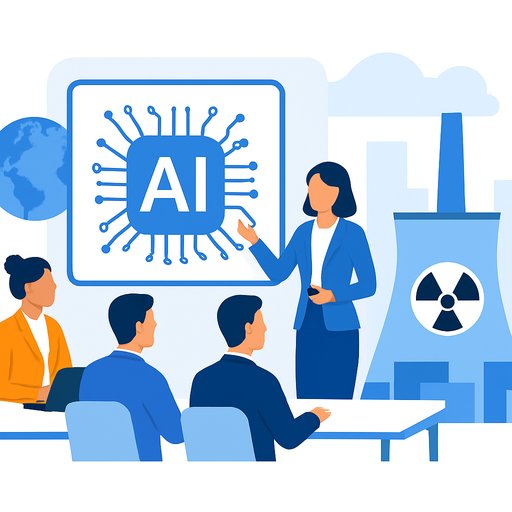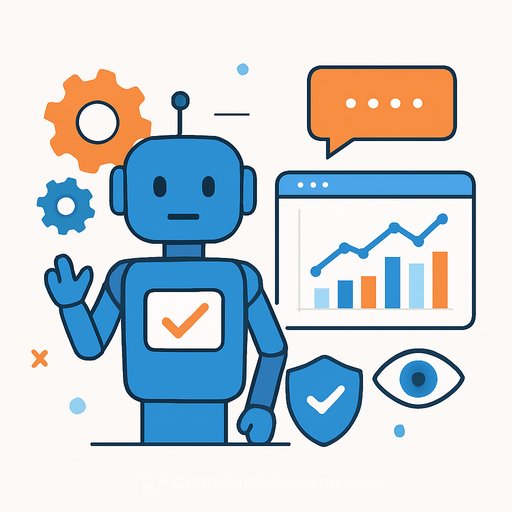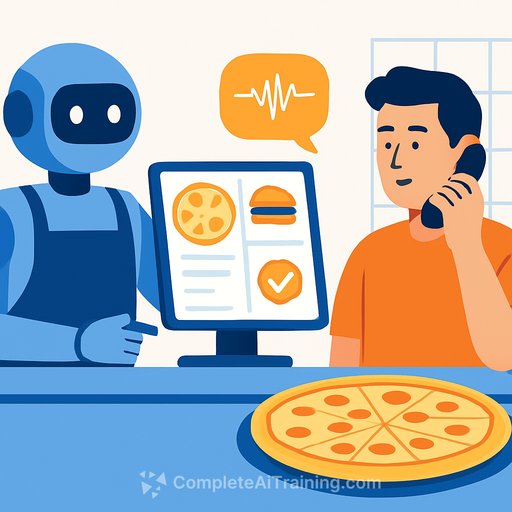AI for Nuclear Operations: Key Takeaways from the RegLab1 Deep Dive Workshop (Toronto, Oct 2025)
The International RegLab Joint Project, co-ordinated under the auspices of the NEA in co-operation with the IAEA ISOP Network and the Electric Power Research Institute (EPRI), held its first in-person RegLab1 Deep Dive Workshop in Toronto, Canada, on 23-24 October 2025. Around 30 participants-regulators, licensees, vendors, and technologists-worked through how artificial intelligence can support nuclear operations in practice.
This is the first in a series focused on deploying disruptive technologies with early, cross-border collaboration. Organisations from Canada, France, Japan, Korea, Spain, the United Kingdom, and the United States are involved, building common ground during the earliest phases of technology deployment and regulatory development.
The scenario they tested
Participants explored a forward-looking use case: use AI to monitor real-time data from a large set of plant sensors and flag inconsistencies that deviate from expected operational norms. The outcome targets were clear and operational:
- Detect plant faults earlier.
- Understand and manage dynamic plant risk.
- Plan risk-informed maintenance schedules.
- Justify plant actions that enable operations closer to the limits and conditions of operation.
How the workshop ran
The RegLab format brings regulatory, operational, and technology voices together in a focused, two-day working session. The goals were to reach a shared understanding of the context, surface blockers and enablers, outline ways to overcome the obstacles, and define follow-on work for the sector-regulators included.
- Confirm a common view of the innovation and its operating context.
- Identify blockers, challenges, and enablers for deployment.
- Map practical paths to reduce risk and realise value.
- Outline concrete next steps the sector can take.
Safety assurance: what good looks like for AI in the plant
Discussions focused on how to achieve safety assurance for systems that include machine learning. The consensus: assurance must be specific to the use case, evidence-based, and repeatable across the lifecycle.
- Data provenance and quality management, including sensor health and drift detection.
- Verification and validation that cover training, testing, and on-line performance monitoring.
- Model change control: versioning, retraining triggers, rollbacks, and audit trails.
- Human oversight: clear authorities, escalation thresholds, and explainability sufficient for operator decision-making.
- Defensible safety case links: from requirements to test evidence to operational procedures.
- Cybersecurity and supply-chain expectations aligned with plant quality requirements.
Operations-focused takeaways you can apply now
- Start where data is strong and operational value is explicit-fault detection on well-instrumented systems is a good first step.
- Run AI in shadow mode first. Compare alerts to ground truth and operator judgment before introducing authority.
- Define clear action thresholds. For each alert class, specify who responds, how fast, and what evidence is required.
- Set up a model Management of Change process that mirrors engineering changes-approvals, documentation, and rollback plans.
- Build a data pipeline you can trust: sensor validation, latency budgets, missing-data handling, and timestamp alignment.
- Track meaningful metrics: false positives/negatives, lead time to detection, maintenance deferrals, and workload impact on crews.
- Establish an AI review board with operations, engineering, safety, and cyber. Meet on a fixed cadence with incident reviews.
- Test failure modes: simulated anomalies, degraded sensors, stale models, and communication loss. Keep manual fallbacks ready.
- Qualify suppliers against plant QA expectations and require transparent model documentation and update policies.
Linked events and what's next
The workshop followed the DIET Conference (20-22 October 2025), organised by the Canadian Nuclear Society, which featured a session on RegLab and a technical panel moderated by IAEA/ISOP with input from Canadian and UK regulators, EPRI, and NEA on the role of international co-operation in advancing DIET and nuclear safety.
Participants now look forward to a publicly available RegLab1 report. The next phase-RegLab2-will address a new topic and include a Deep Dive Workshop in Jeju-do, Korea, in May 2026.
Sources and further reading
- International Atomic Energy Agency (IAEA)
- Electric Power Research Institute (EPRI)
- Canadian Nuclear Society
Build team capability
If your operations team is formalising skills in AI monitoring, assurance, and governance, you can explore role-targeted options here: AI courses by job.
Your membership also unlocks:






